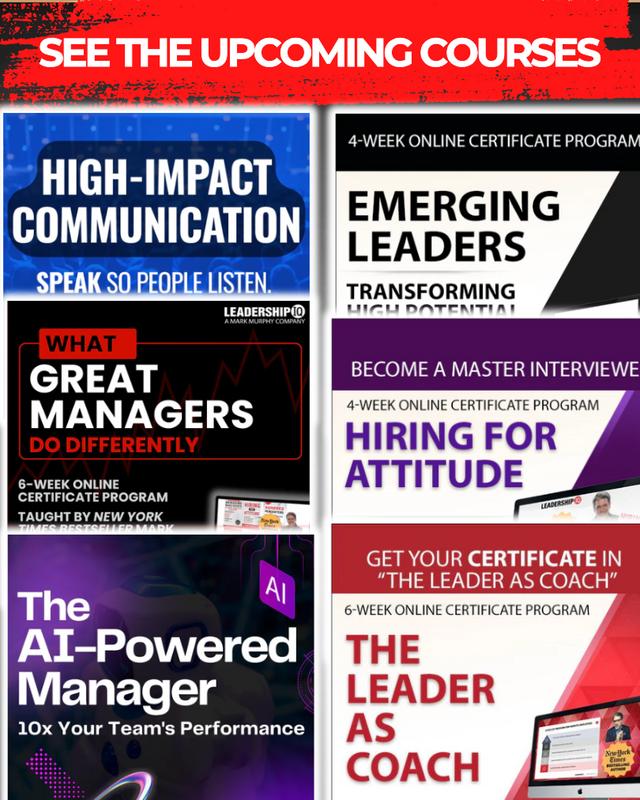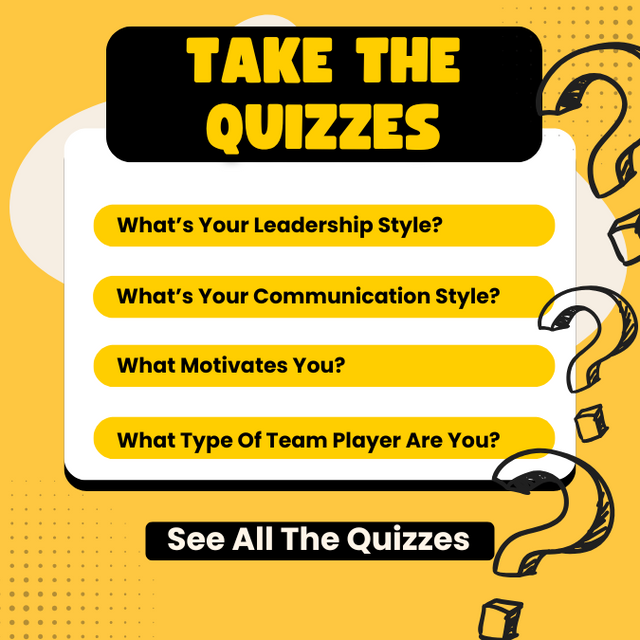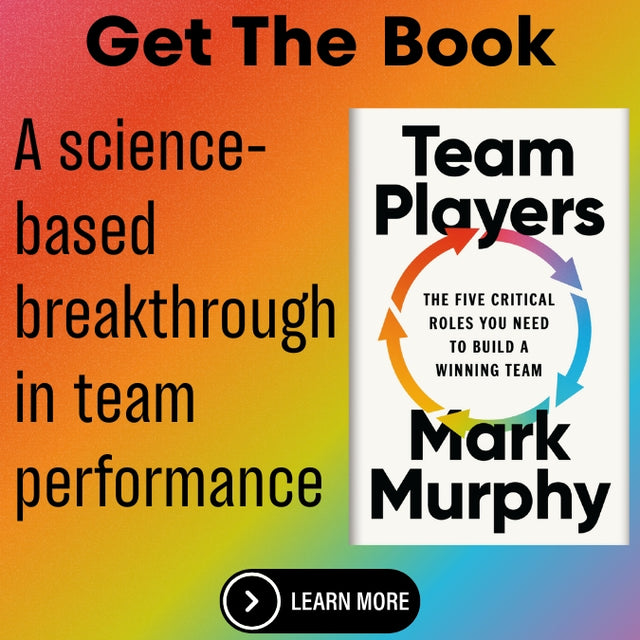Emotional intelligence has emerged as a sine qua non of leadership success in today's workplace[1]. In simple terms, emotional intelligent leadership refers to a leader's ability to recognize and manage their own emotions, as well as understand and influence the emotions of others. This deep-dive report explores what emotional intelligence in leadership is, why it matters for organizations, the key traits of emotionally intelligent leaders, strategies to develop these skills, and real-world examples – all backed by academic research, recent data, and case studies.
Emotional Intelligence (EI) is commonly defined as "a set of skills that help us recognize, understand, and manage our own emotions as well as recognize, understand and influence the emotions of others"[2]. In a leadership context, emotional intelligence means being aware of how feelings affect team dynamics and outcomes, and using that awareness to lead more effectively. Psychologists Peter Salovey and John D. Mayer, who first coined the term in 1990, describe it as the ability to identify, understand, use, and manage emotions in positive ways[3].
Renowned psychologist Daniel Goleman helped popularize EI in business, noting from his research at nearly 200 global companies that the most effective leaders are distinguished by a high degree of emotional intelligence[4][5]. Goleman famously stated that while IQ and technical skills are important for leadership, "emotional intelligence is the sine qua non of leadership"[1] – in other words, it's the essential ingredient without which leadership falls flat. Academic studies confirm this view: emotional intelligence is a crucial element of the competencies needed for effective leadership and team performance[6][7]. Researchers have found that emotional and social skills are often more predictive of leader effectiveness than cognitive ability alone[8][9]. In fact, Goleman's competency model showed that emotional competencies account for two-thirds of the skills vital for outstanding job performance worldwide[10]. Not only is EI important for individual success, but its importance increases as individuals move up into higher leadership roles[11]. In short, emotional intelligent leadership means leveraging emotional awareness and empathy as core leadership tools – and it has become indispensable in modern organizations.
Leading with emotional intelligence isn't just a "nice-to-have" – it directly drives tangible business results. A comprehensive 2023 literature review analyzing over 100 studies concluded that emotionally intelligent leaders measurably improve workplace outcomes, enhancing both employee behavior and the bottom line[12]. Below are key benefits of emotional intelligent leadership, supported by research and data:
Higher Team Performance and Productivity: Teams led by high-EQ leaders consistently outperform others. For example, McKinsey found that change initiatives led by emotionally capable leaders were up to 2.5× more likely to succeed, yielding 15–25% gains in team productivity[13]. Overall, organizations that emphasize EI report higher levels of productivity and innovation than those that ignore it[14].
Improved Employee Engagement and Retention: Emotionally intelligent leadership fosters trust and a positive work climate, which boosts engagement. A Gallup analysis revealed that employees with high-EI managers were 4× less likely to leave their jobs than those managed by leaders with low EI[15]. In other words, emotionally savvy leaders dramatically reduce turnover by building strong rapport and understanding employees' needs. It's often said that "people don't leave companies – they leave managers," and managers with high emotional intelligence give people a compelling reason to stay.
Better Decision-Making and Change Management: Leaders who excel at recognizing and regulating emotions make more grounded decisions, especially under stress[16]. They can stay calm and think clearly during crises. Research by McKinsey indicates that emotionally intelligent leadership is critical when guiding teams through change, making transitions smoother and more successful[13]. In volatile or high-pressure situations, emotionally intelligent leaders maintain clarity and resolve conflicts constructively, preventing knee-jerk reactions that could derail projects.
Higher Job Satisfaction and Morale: When leaders are attuned to their teams, employees feel valued and understood. Studies show that emotional competence in leaders correlates with greater employee satisfaction and morale[17][18]. By showing empathy and recognizing accomplishments, emotionally intelligent leaders create a supportive environment. This boosts team morale, which in turn elevates performance and loyalty. For instance, one study noted that nurses working under resonant (emotionally intelligent) leaders had less burnout and better teamwork than those under dissonant leaders[19].
Strong Organizational Culture and Customer Outcomes: Emotional intelligence at the organizational level translates into better customer service and brand strength. In a global survey of nearly 600 leaders by Harvard Business Review and Four Seasons, fewer than 20% of companies were identified as "emotionally intelligent organizations," yet those that did qualify enjoyed strong customer experiences, loyalty, and advocacy[20]. Four Seasons itself attributes its sustainable competitive advantage in the luxury hotel industry to a culture built on emotional intelligence[21] – an emotionally intelligent culture empowers employees to deliver exceptional customer care. Moreover, emotionally intelligent companies have a high degree of employee empowerment and tolerance for risk, fueling innovation[20].
Better Engagement and Talent Development: Leaders high in EI excel at mentoring and developing others. 75% of people managers now use emotional intelligence to gauge employees' readiness for promotion or raises[22], and 57% say their highest performers have strong EI skills[23]. By understanding individual strengths and weaknesses, emotionally intelligent leaders can coach team members more effectively, leading to higher engagement and professional growth. This focus on people development helps organizations build future leaders and maintain a talent pipeline.
In summary, emotional intelligent leadership leads to teams that are more productive, loyal, and adaptable. It creates a climate of trust and open communication (high "psychological safety" as experts call it[24]) where employees feel motivated to contribute their best. The evidence is clear that developing leaders' emotional intelligence pays off in performance (explaining up to 58% of success in all types of jobs, according to one analysis[23]) and in creating healthier, more resilient organizations.
Emotionally intelligent leaders tend to share a set of core competencies or traits that enable their success. Daniel Goleman's framework breaks EI into five components[25], while other models (like the Harvard one) use four categories[2]. Below are the key traits of an emotionally intelligent leader, with a brief explanation of each:
Self-Awareness: The foundation of emotional intelligence is self-awareness – the ability to recognize your own emotions and understand how they affect your thoughts and behavior. Self-aware leaders have an accurate sense of their strengths and limitations. They are conscious of their emotional triggers and instincts in real time. This matters because leaders who lack self-awareness can misjudge situations or how they come across. In fact, research by organizational psychologist Tasha Eurich found that while 95% of people think they are self-aware, only about 10–15% actually are, which means many leaders carry "emotional blind spots"[26]. High self-awareness helps leaders navigate those blind spots by continually reflecting on their feelings and the impact of their actions.
Self-Regulation (Self-Management): This is the ability to control or redirect disruptive emotions and impulses and adapt to changing circumstances. Leaders strong in self-regulation stay calm under pressure – they don't let anger, fear, or excitement cloud their judgment. Instead of reacting impulsively or venting, they pause, reflect, and respond thoughtfully. Self-regulation also implies trustworthiness, conscientiousness, and integrity. An emotionally intelligent leader can manage their temper and stress, exhibiting resilience during crises. As one example, using simple techniques like the "STOP" method (Stop, Take a breath, Observe, Proceed) can significantly improve a leader's moment-to-moment emotional control[27][28]. By modeling even-keeled behavior, such leaders create stability for their teams.
Motivation (Drive): Emotionally intelligent leaders are driven by more than external rewards like money or status – they have a strong intrinsic motivation to achieve goals for personal growth and organizational purpose. They are optimistic, even in the face of setbacks, and strive to improve. This inner passion and persistence (sometimes called grit) is contagious, inspiring teams to overcome obstacles. Goleman noted that leaders with high EI tend to have a strong achievement drive and commitment to their mission[29][30]. In practice, such leaders set high standards, are willing to tackle challenging goals, and approach their work with energy and a positive attitude. Their motivation is closely linked with their ability to self-regulate – they can delay immediate gratification and keep pushing toward long-term success.
Empathy (Social Awareness): Empathy is the capacity to understand and share the feelings of others – essentially, putting yourself in someone else's shoes. In leadership, empathy enables a person to sense their team's needs, listen to their concerns, and make people feel heard. This doesn't mean being overly soft or always agreeing; it means considering employees' emotions in decision-making. Leaders with empathy pick up on non-verbal cues like tone or body language and are attentive to team morale. They are skilled at delivering sensitive feedback or navigating interpersonal conflicts because they can see how things might feel from another's perspective. Empathy is particularly crucial when leading through change or personal challenges – for instance, understanding an employee's personal crisis and providing support. Academic research reinforces that emotional understanding in leaders contributes to higher team cohesion and conflict resolution[31][32]. In short, empathy builds trust. Employees under empathetic leaders report greater loyalty and are 4× less likely to leave as noted earlier[15].
Social Skills (Relationship Management): This is the culmination of the other EI components in the form of adeptness at managing relationships and building networks. Leaders with strong social skills excel at communication, conflict management, influence, and collaboration. They can guide and inspire people to move in the desired direction. Key social skills include listening effectively, articulating a vision, building rapport, and teamwork. An emotionally intelligent leader with good social skills can navigate the politics of an organization with integrity and find common ground to resolve disagreements. Research by TalentSmart has identified social skill (along with self-regulation) as one of the strongest EQ predictors of leadership success[33]. In practice, this might mean a manager skillfully mediating a team dispute, or a CEO convincing stakeholders to embrace a new strategy by forging emotional connections to the idea. Leaders high in this trait create a positive, cooperative atmosphere – they lead by influence rather than authority.
These five traits often work in tandem. For example, a leader must be self-aware of their frustration (self-awareness) and then control it (self-regulation) to empathize with an employee's perspective (empathy) and have a constructive dialogue (social skill) that motivates the employee (inspiring motivation). By consciously developing these competencies, anyone in a leadership role – from corporate executives to project managers – can become a more emotionally intelligent leader.
The good news is that emotional intelligence is not a fixed trait – it can be developed and improved over time. Organizations and individuals can take concrete steps to cultivate emotional intelligent leadership. Below are effective strategies and training methods, supported by recent data, to build EI in leaders:
Formal Training Programs and Workshops: Structured learning can raise awareness and teach core emotional intelligence skills. Many companies now offer leadership development programs focused on EQ, covering topics like active listening, empathy, and conflict resolution. Despite the proven benefits, there is a gap to address: only 42% of organizations provide specific training to help employees develop emotional intelligence[34]. Those that neglect EI development risk facing lower productivity, stifled innovation, and an uninspired workforce, Harvard Business Review warns[34]. Hence, HR professionals are increasingly incorporating EI modules into leadership training. Programs often include self-assessment (like the EQ-i or MSCEIT tests) to give leaders feedback on their emotional strengths and weaknesses, followed by interactive exercises to practice new behaviors.
One-on-One Coaching and Feedback: Personalized coaching is one of the most effective ways to improve a leader's emotional competencies. A skilled executive coach or mentor can observe a leader's interpersonal style and provide tailored feedback and support. They might role-play difficult conversations or help the leader reframe limiting beliefs. Over time, coaching builds greater self-awareness and accountability. Research shows that leaders who actively seek and learn from feedback about their emotional behaviors develop EQ up to 20–30% faster than those who resist feedback[35][36]. Organizations may use 360-degree feedback tools to gather input from colleagues on a leader's empathy, communication, and trustworthiness. This data, when delivered constructively, highlights growth areas. By working with a coach on these areas (for example, how to stay composed when challenged, or how to show more empathy in daily interactions), leaders can make steady improvements.
Practical Exercises and Daily Habits: Just like technical skills, emotional skills strengthen with regular practice. Leaders can engage in specific exercises to build their EI "muscle". For instance, keeping an emotion journal can boost self-awareness – writing down daily what emotions you felt and why, which has been shown to activate brain regions that help regulate emotion[37][38]. Practicing active listening in every conversation (fully concentrating, not interrupting, and summarizing what was heard) is another exercise; studies by the Center for Creative Leadership found that training in active listening can improve team communication ratings by 15–25%[39]. Mindfulness techniques, such as brief meditation or breathing exercises, are proven to help with self-regulation under stress. Even a simple habit like the "pause technique" – taking a slow breath and counting to ten before responding when upset – can build emotional control over time[40]. Empathy can be cultivated through perspective-taking challenges (intentionally imagining others' viewpoints) and empathy mapping, which deepen one's understanding of others' feelings[41][42]. Many leaders also do role-playing for conflict resolution to refine their social skills in a safe setting[43]. By turning these exercises into daily or weekly habits, leaders gradually rewire their responses and improve their emotional agility.
Creating an Emotionally Intelligent Culture: For HR and organizations, it's important to reinforce and normalize emotionally intelligent behaviors in the workplace. This can be done by establishing team norms around open communication and respect. For example, some teams do quick "emotion check-ins" at the start of meetings, where members share how they're feeling, to build empathy and trust. Companies can also highlight and reward emotionally intelligent leadership through their performance reviews and promotion criteria (indeed, as noted, 75% of managers already consider EI when promoting[22]). Building a culture of coaching and mentorship is another strategy – senior leaders who model vulnerability and empathy set the tone for others. Case studies show that when best practices like coaching, feedback, and team cohesion exercises are embedded, team emotional climate and cohesion improve significantly (15–20% in some HBR case studies)[44]. In essence, training emotional intelligence at scale may involve workshops plus ongoing reinforcement, such as peer support groups or digital tools (some companies are even exploring AI-driven apps for EI training[45]). The goal is to make emotional intelligent leadership not just an individual attribute, but a shared organizational value.
By combining formal training, coaching, practical exercises, and supportive culture, both individual leaders and organizations can elevate emotional intelligence. Progress may be gradual, but the payoff – in the form of engaged employees, adaptable teams, and stronger leadership effectiveness – is well worth the investment. As one McKinsey report projected, demand for emotional skills will grow by 26% by 2030[46], making these training efforts a strategic imperative for future-ready companies.
To illustrate the impact of emotional intelligent leadership, here are a few notable examples of leaders and organizations leveraging high EI to achieve success:
Satya Nadella, CEO of Microsoft: When Satya Nadella took the helm of Microsoft in 2014, he famously shifted the company's culture towards empathy, collaboration, and a "learn-it-all" mindset. Nadella openly emphasizes the value of emotional intelligence, even stating that in the long run "EQ trumps IQ." Under his leadership – marked by active listening and understanding stakeholder needs – Microsoft saw a remarkable resurgence in innovation and market value[47][48]. Nadella's focus on empathizing with both employees and customers helped break down silos and ignite teamwork at Microsoft. One anecdote of his EI in action: he encouraged teams to "listen more and talk less" and learn from customer feedback, which improved Microsoft's products and customer relationships. Nadella's tenure demonstrates how a leader's emotional intelligence can transform a company's performance and culture.
Indra Nooyi, former CEO of PepsiCo: Indra Nooyi is often cited as a prime example of an emotionally intelligent leader in the corporate world. She made empathy a cornerstone of her leadership style[49]. Notably, Nooyi would write personal letters to the parents of her senior executives, thanking them for the values and support they instilled in their children[50]. This uncommon gesture showcased deep appreciation and emotional connection, boosting loyalty and morale among PepsiCo's leadership ranks. Nooyi also prioritized listening to employees at all levels and understanding consumer emotions towards PepsiCo's brands. Under her empathetic and inclusive leadership, PepsiCo enjoyed consistent growth and strong employee engagement, illustrating how high EQ at the top can trickle down into tangible business success[51]. Her approach fostered a culture of mutual respect and trust – people felt valued, which encouraged them to go the extra mile.
Four Seasons Hotels – Emotional Intelligence as Culture: The Four Seasons luxury hotel chain offers a case study in organizational EI. Four Seasons explicitly built its brand around emotional intelligence, hiring and training staff to be attuned to guests' needs in deeply personal ways. The company credits this "EI culture" for its sustainable competitive advantage in a fiercely competitive industry[21]. In a joint study with HBR, Four Seasons found that emotionally intelligent organizations (like itself) tend to empower employees to solve problems proactively and take calculated risks to please customers[52]. The outcome is higher customer loyalty and advocacy – guests return not just for plush amenities, but because of the genuine care and emotional connection they experience from staff. Four Seasons shows that when leadership champions emotional intelligence as a core value, it permeates the entire organization and becomes a driver of customer satisfaction and business performance.
These examples underline a common theme: emotional intelligence is a differentiator in leadership effectiveness. Whether turning around a tech giant, steering a global consumer products company, or delivering unparalleled service in hospitality, leaders who leverage empathy, self-awareness, and strong interpersonal skills create winning outcomes. Their stories serve as inspiration for corporate leaders and HR professionals alike to invest in developing these skills. Indeed, emotional intelligent leadership is often the invisible edge that separates good organizations from truly great ones.
In today's complex, fast-changing business environment, Emotional Intelligent Leadership is more important than ever. Leaders who can manage themselves and understand others' perspectives are better equipped to build resilient teams and navigate the human challenges of the workplace. Academic research overwhelmingly supports that emotional intelligence is a critical driver of leadership effectiveness and organizational success[12][53]. Moreover, the demand for emotionally savvy leaders is rising – employers recognize that skills like empathy, adaptability, and collaboration are no longer "soft" skills, but essential competencies for the 21st-century workplace[46][54].
For corporate leaders, developing emotional intelligence can unlock higher performance, improved employee morale, and innovation. For HR professionals, prioritizing EI in hiring, training, and culture-building is a strategic move that yields returns in retention and productivity. The journey to become an emotionally intelligent leader is continuous – it involves self-reflection, feedback, and practice – but the benefits are transformative. Leaders with high EQ not only deliver strong business results; they also cultivate workplaces where people thrive and organizations adapt with agility.
In summary, emotional intelligent leadership is the blend of heart and mind that separates average bosses from exceptional leaders. By embracing and developing emotional intelligence – through education, deliberate practice, and cultural commitment – organizations can foster leaders who inspire trust, drive success, and lead with humanity. That, ultimately, is the kind of leadership that leaves a lasting legacy in today's world.[55][14]











